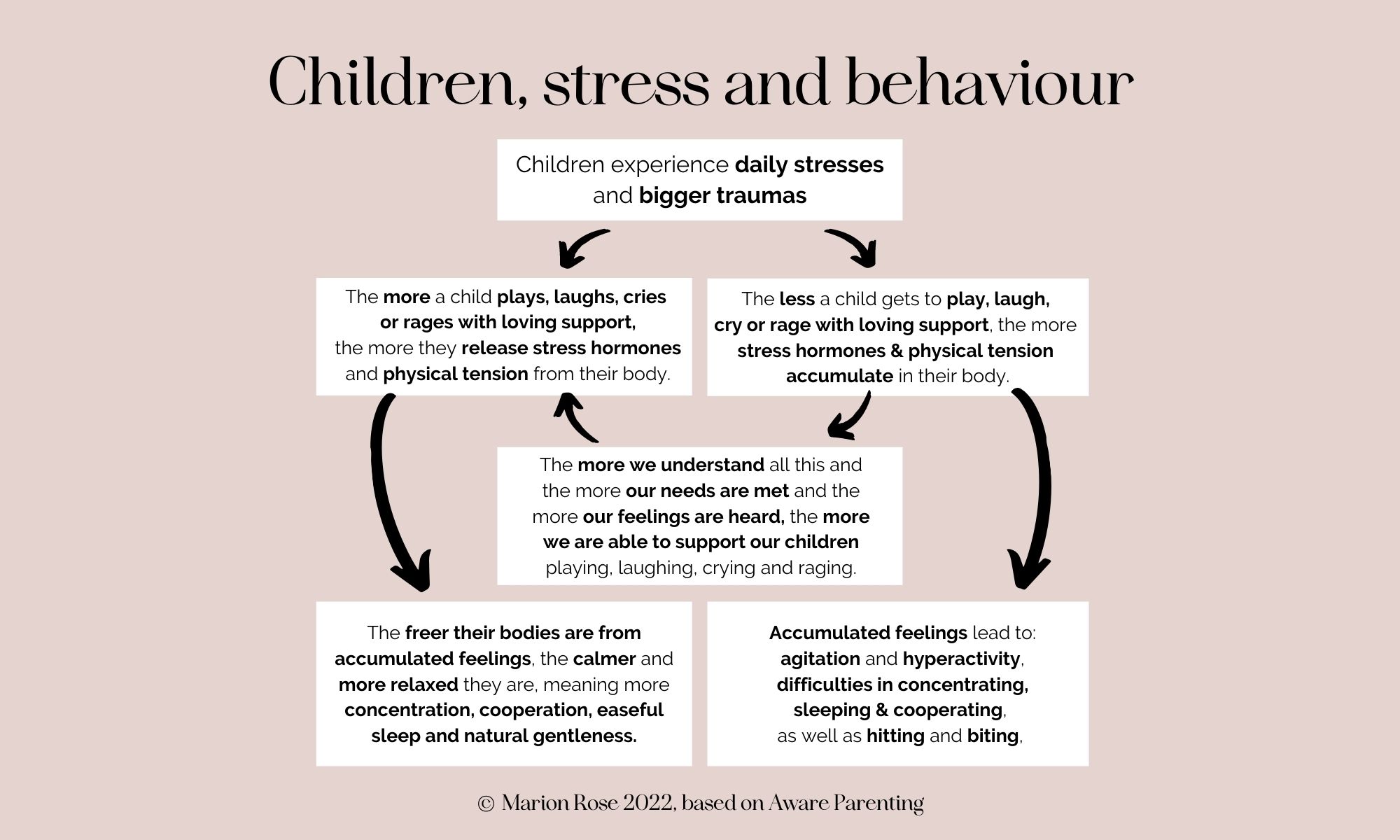All children experience daily stresses, however much we aim to meet their needs and protect them from harm. The majority of children also experience bigger stresses, which could be called trauma. Each child differs in the amount of stress and trauma they experience – some experience smaller amounts, some experience lots.
Each experience of stress or trauma leads to uncomfortable feelings such as overwhelm, frustration, powerlessness, sadness or fear.
Those feelings have physiological correlates in the form of stress hormones and the physical urge for fight or flight.
Children also have inbuilt processes to release those feelings, hormones and physical tension.
These natural processes include:
Playing;
Laughing;
Crying;
Raging.
However, the culture that most of us grew up in has lost this knowledge and wisdom, so we grow up conditioned to work against these natural processes.
When we work to repress a child’s playing, laughing, crying or raging either because we don’t understand that these are all healing processes,
or we don’t have the emotional spaciousness to respond lovingly to these natural processes in our children,
or our own feelings from childhood bubble up, memories of not getting to play, laugh, cry or rage with loving support,
Then the feelings, stress hormones and physical tension accumulate.
And accumulate.
And accumulate.
That accumulation is uncomfortable for a child. They feel agitated, or will aim to suppress the discomfort with various forms of dissociation, including control patterns such as a dummy/pacifier, sucking their thumb, or using eating, movement, or screens to suppress.
This accumulation also leads to many of the behaviours that can be challenging for parents:
Difficulty sitting still, listening or concentrating;
Difficulty cooperating;
Lack of awareness of their own body and the bodies of others;
Falling over, bumping into things;
Difficulty going to sleep and sleeping peacefully and restfully;
Roughness, throwing, hitting, biting, pushing.
However, the more we have:
Accurate information about the effects of stress and trauma on children, and how to help them heal;
Ways to meet our own needs in a culture that is anti-parents;
Support to express our own childhood unexpressed feelings,
The more we will be able to support our child’s natural healing processes:
To join in warmly with their play and laughter in the form of attachment play;
To listen lovingly to their tears and tantrums;
To offer loving limits in response to hitting and harshness, in ways that say no to the behaviour and yes to the underlying feelings.
The more they will:
Feel calm and relaxed in their body;
Feel connected with themselves and with others;
Be able to concentrate and be present in their body and aware of the presence of others;
Be willing to cooperate;
Be able to go to sleep and sleep peacefully and restfully;
Be naturally gentle.
